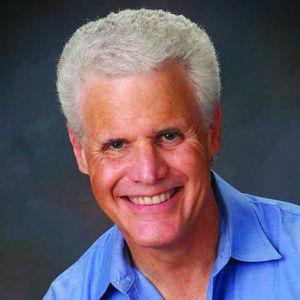
Rabbi Cary Kozberg
They tried to kill us.
We won.
Let’s eat.
As Passover approaches and we begin preparing for the seder, this old joke will no doubt be heard often in the coming days. It is a familiar and tongue-in-cheek explanation of what the seder is all about, at least for some. In a time when some regrettably search for ways to abbreviate their seder, this is “abbreviation” on steroids.
The joke is meant to be humorous; however, it is not inaccurate. At the seder, we begin by telling the story of how Pharaoh enslaved us with an ultimate plan to annihilate us and how we won and survived. Then we eat.
Moreover, this phrase is often heard not just on Passover, but on other holidays that commemorate moments when the plans of our enemies were thwarted. Each holiday has its own “commemorative” food item: On Purim, we read the story of Esther and then eat hamantaschen. On Chanukah, we light the candles and then eat latkes and jelly doughnuts.
On Israel’s Independence Day, we remember the great struggle and victory in 1948 and then enjoy hummus and falafel.
One could argue that since the theme of the redemption from Egypt is embedded in the Kiddush that inaugurates Sukkot, Shavuot and Shabbat, it is also applicable to those holidays.
As I write this, we have just celebrated Purim and are preparing for Passover. With the events of Oct. 7 and its aftermath still at the forefront of our collective Jewish psyche, latkes on Chanukah and hamantaschen on Purim were consumed with less gusto. Unless the situation in Israel dramatically improves over the next several weeks, the brisket and matzah ball soup may not be as enjoyable as in previous years.
Nevertheless, the old joke will still be told, perhaps serving as verbal “comfort food” at a time when our collective Jewish anxiety level is quite high. But I would suggest that, especially now, we should understand it as more than a joke. On the contrary, in many ways, it summarizes what it means to be a Jew.
They tried to kill us. From ancient Pharaoh and his subjects to Amalek and Haman, medieval Christendom and Islam, Hitler and the Nazis, and modern-day Hamas and its supporters, our enemies “have arisen through the endless years … filled with a futile thought: To make an end of that which God has cherished” (Gates of Repentance, p. 431).
We won. Despite centuries of persecution and oppression both physical and spiritual, wanton degradation and ruthless slaughter, we have refused to disappear and refused to wallow in victimhood. We have remained resilient and committed to our ancient mandate to be “a light unto the nations.”
Let’s eat. The first two sentences of the joke remind us of our past. The third invites us to respond in the present: Let’s celebrate as Jews have always celebrated — by eating. But let this food not only satisfy our appetites but nourish our souls, and prepare us spiritually and psychologically for whatever the future holds.
The phrase “in every generation” appears twice in the Passover Haggadah: “In every generation, some rise up against us to destroy us, but the Holy One, Blessed Be He, delivers us from their hands” and “In every generation, a person should regard him/herself as personally having gone forth from Egypt.”
This means, “In every generation,” they tried to kill us.
“In every generation,” we won, thanks to Divine intervention.
“In every generation,” let us see ourselves as redeemed from both physical and spiritual bondage, now free to live as Jews have been called to live.
Therefore, let’s eat! As we enthusiastically enjoy the traditional seder foods, may we also develop and nurture an appetite for Torah and Jewish learning — the “food” that has always nourished Jewish souls.
Adonai oz l’amo yetain; Adonai y’varekh et amo bashalom. “Hashem will give strength to His people. Hashem will bless His people with peace.”
May the food we were given after we left Egypt, the food that has sustained us as a people and given us our unique purpose in the world, continue to strengthen us in this difficult time and prepare us for what history has in store for us.
Rabbi Cary Kozberg is the rabbi of Temple Sholom in Springfield, Ohio, and the Jewish chaplain at Kensington Place in Columbus.






